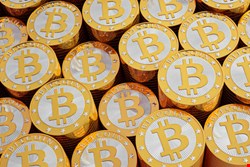
Japanese residents will be able to use the machine, manufactured by Robocoin, to buy and sell bitcoins at market price, tied to the Yen, and will give paper receipts for transactions. Users can add bitcoin to their virtual wallet by feeding in cash or cards, and can sell bitcoins to draw out cash.
Users can register an account on the ATM in about five minutes. The machine scans a government-issued photo ID and uses facial recognition technology to verify that their face matches the photo. According to Robocoin, users also scan their palm on the machine, which is used along with a PIN and their phone number to verify their identity in future transactions.
The machine for Japan has been ordered by a small import company known as Raimu, which specialized in dog snacks and camping gear before this foray.
“As a trading company, we are also always searching interesting items to import to Japan,” said the CEO of Raimu, Motonori Kan, speaking to PC Magazine. At least two more units are expected to make their way to Japan in the coming months, he said, and probably many more than that.
The first bitcoin ATM, also from Robocoin, was installed in Vancouver, Canada’s Waves Coffee Shop last October. According to ABC News, it handled a total of 81 transactions and exhanged more than $10,000 from one currency to another in its first day.
Since then, bitcoin ATMs have made their way to trial installations in the UK, Switzerland, China, Singapore, the US, New Zealand and others. In addition, Australia just launched its first machine last week.
Bitcoin is, however, controversial. It’s lack of traceability – in that respect, it’s like cash – has meant that it has become a currency of choice for cybercriminals. It’s also a fluctuating currency whose value can oscillate quickly on the open market, not being tied to any one currency or even a gold standard. And it’s less than secure, it would seem: Mt. Gox, one of the largest bitcoin exchanges, has gone bankrupt after hackers made off with all of its reserves.
Banks have wasted little time in reacting to bitcoin’s general volatility and concerns. For instance, the Australian ATM installation comes even as the National Australia Bank said that it was cutting off digital currencies, closing the accounts of business customers who primarily trade in bitcoin and other crypto currencies starting May 2. The Bank of Ireland and the Bank of Montreal have also distanced themselves.
Nonetheless, Raimu sees nothing but upside for its import business. “It’s going to be an educational process,” said Kan. “People know about Robocoin, and it has the highest security features, and features required by governments around the world regarding money-laundering restrictions.”